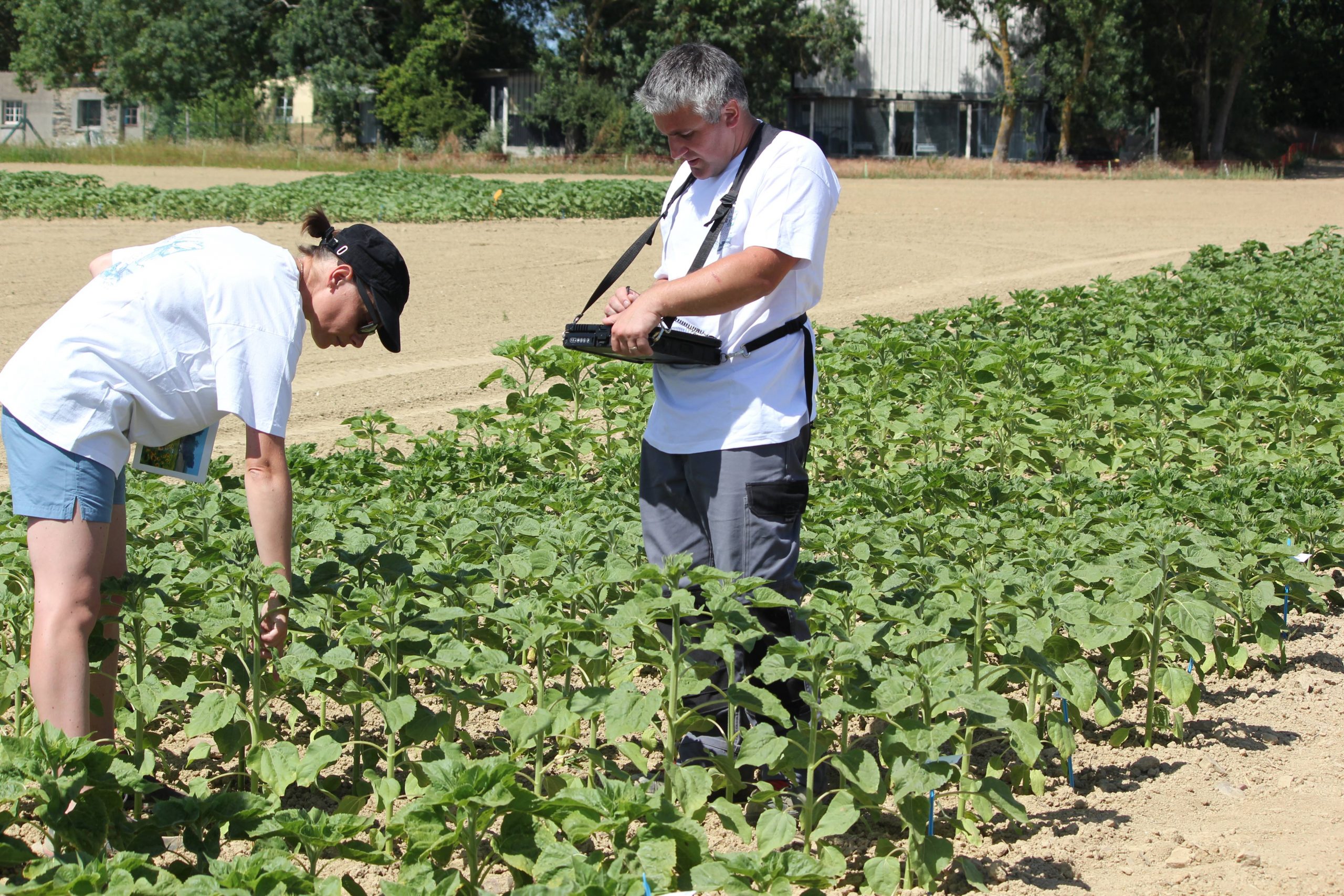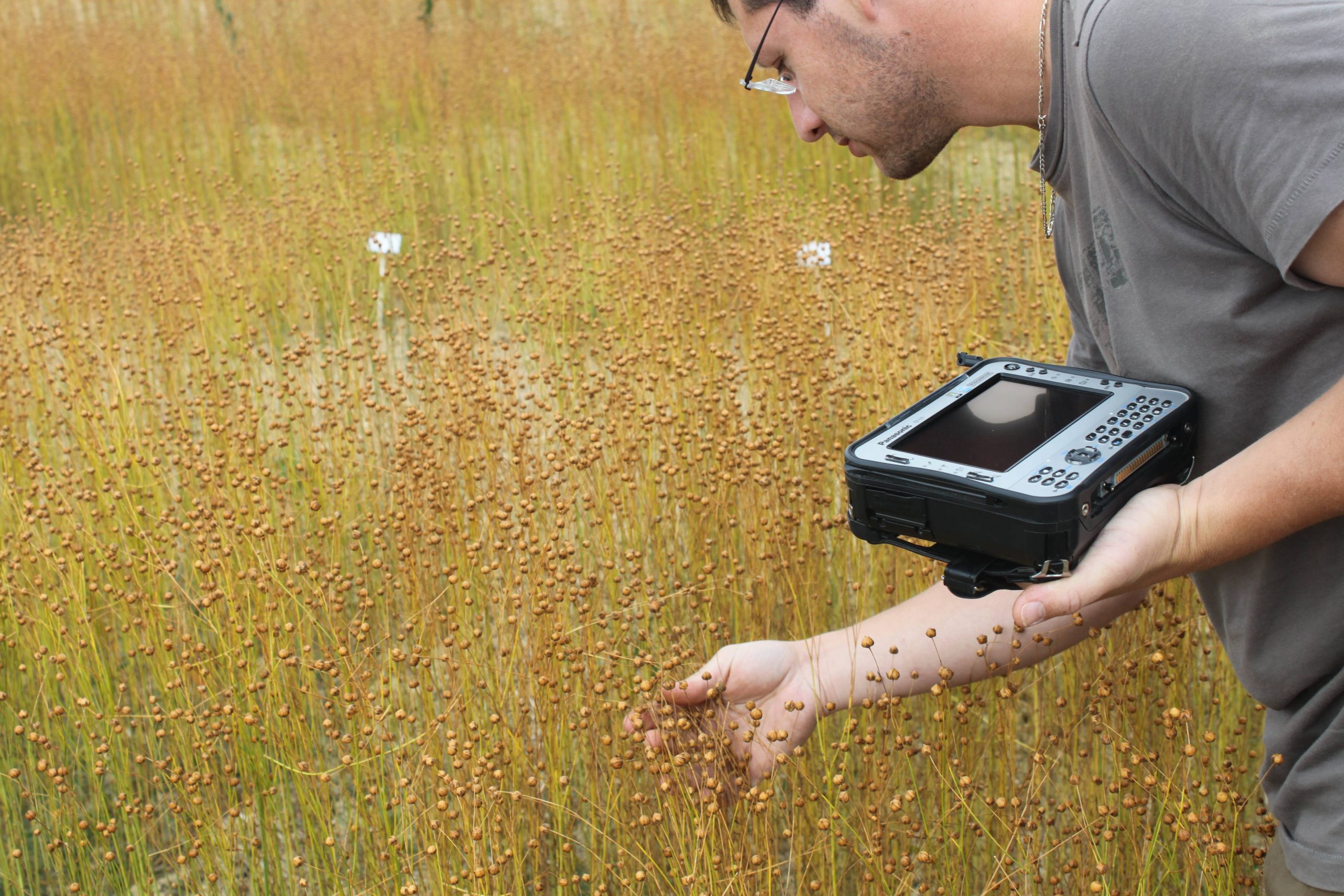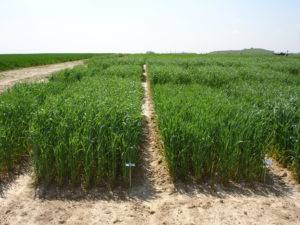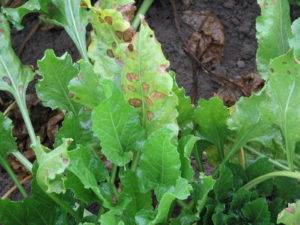DUS & VCUS Testing
DUS and VCUS: the core of variety testing
The primary mission of GEVES’s Variety Study Department is to carry out field testing of new varieties and seed lots, for all cultivated plant species.
DUS tests are carried out for different purposes:
- Registering new varieties in the Catalogue of plant varieties (CTPS)
- Protecting a variety with a French Plant Variety Right (INOV)
- Protecting a variety with a European Plant Variety Right (CPVO)
- On behalf of other European or non-European Examination Offices.
VCUS tests are carried out for all agricultural crops submitted for registration in the Catalogue. To qualify for registration, a new variety must have Value for Cultivation, Use, and Sustainability (VCUS) in comparison to existing commonly-used varieties.

Distinctness, Uniformity and Stability (DUS) Testing
DUS tests are carried out to ensure that a new variety is Distinct from existing varieties, that its characteristics are Uniform, and that the variety is Stable with consistent phenotypic characteristics from one generation to the next.
DUS tests are carried out in accordance with harmonised EU protocols, based on plant material provided by the applicant. A variety description is produced, which is used to identify the variety. This description and plant material can later provide the basis for seed certification and plant variety protection applications.
The DUS test generates a description of the variety detailing its relevant characteristics. For example, for agricultural crops, morphological features and colour are mostly used, as well as phenological features such as flowering and ripening phases. Some species are also tested for disease resistance.
To examine the distinctness of candidate varieties compared to similar existing varieties, GEVES owns extensive collections of well-known reference varieties. It also has extensive databases and software for comparing varieties.

Value for Cultivation, Use, and Sustainability (VCUS) Testing
VCUS tests are carried out for all agricultural crops submitted for registration in the catalogue. The aim of these tests is to evaluate a variety’s suitability for growing in French agro-climatic conditions, and the use made of harvested crops and products produced from that variety. To qualify for registration, a new variety must have ‘added value’. This is established by comparing it to a set of existing reference varieties. This means that when a variety is published in the French catalogue, all end-users can make an informed decision based on the information acquired over 2 testing cycles.
What the trials entail
Candidate varieties are evaluated on:
- Yield level
- End-use quality (protein content and micro-malting quality in winter barley, oil and protein content in rapeseed, animal feed quality in forage maize, etc.)
- Resistance to disease, pests, environmental aggressors such as wind and winter cold.
- Earliness, a deciding factor for most cultivated species.
In order to limit the negative environmental impacts of agricultural productions, particular attention is given to a variety’s ability to adapt to environmental and growing conditions, its water and nitrogen efficiency, and its resistance to disease and pests.
As most of these characteristics depend greatly on the environment, trial networks are implemented to simulate the different environmental conditions that the variety could encounter. These trials last two years in order to account for climate variations from one year to the next. VCUS trials also have to represent actual farming practices. For cereal crops, trials are conducted in 2 cycles, with and without fungicide.
 For most species, certain resistances to disease, pests, cold, wind, and other physiological accidents are examined in controlled circumstances. For this, GEVES is equipped with laboratories, greenhouses, INRA greenhouses, and fields contaminated with the disease in question.
For most species, certain resistances to disease, pests, cold, wind, and other physiological accidents are examined in controlled circumstances. For this, GEVES is equipped with laboratories, greenhouses, INRA greenhouses, and fields contaminated with the disease in question.
For forage plants, trials can last up to 3 years, with one implantation site and several years of harvest. This network, called a “CTPS network”, brings together experts from all CTPS structures (GEVES, plant breeders, ITA and INRA) in addition to cooperatives and agricultural colleges. It is coordinated by GEVES.
VCUS admission decision
To qualify for registration, a new variety must offer a clear improvement over existing varieties. This is evaluated by comparing the variety with well-established commercial varieties, also known as comparison varieties. Evaluations are carried out according to registration rules which are formalised by CTPS Expert Commissions and are published in the technical regulations. Registration rules must allow for criteria other than yield disease resistance, maturity, and end-use. The number of criteria taken into account varies significantly depending on the species, from 3 for grain maize (yield, maturity, and lodging) to 24 for potatoes for consumption. As these rules define the criteria that varieties must meet to be registered in the French Catalogue, they play a key role in guiding genetic progress. They are constantly evolving to meet user and society needs, and take account of developments in plant breeding.
Find out more
Find a document (protocoles, règlements techniques, résultats VATE…)







